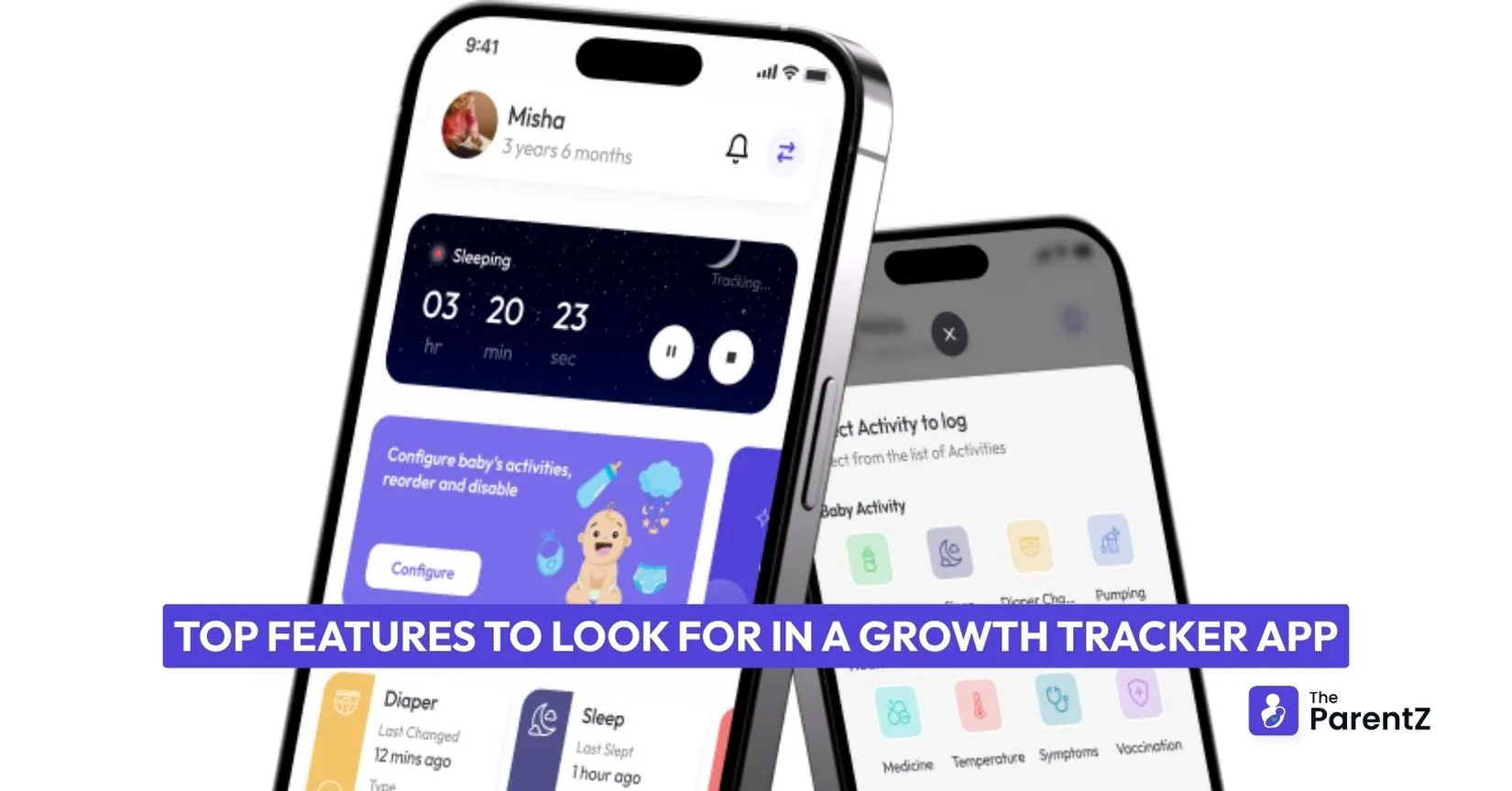When you're raising a baby, it feels like every day brings something new. One day, they're just blinking at you; the next, they’re rolling over or trying mashed bananas. And in between all that wonder, you’re also wondering — Is my baby growing the way they should?
That’s where growth tracker apps come in. They’ve made parenting a little less about guesswork and a little more about clarity. But not all apps are created equal. Some are basic, while others offer you everything you didn’t even know you needed. So, how do you know what to look for? Let’s break it down.
1. Growth Tracking that Goes Beyond Just Numbers
The first thing a good app should do is track your baby’s height, weight, and head size. But here’s the key: it should do more than just show you a number.
If an app doesn’t have clear visuals or doesn’t explain what the percentiles mean, it can cause more stress than help. You might panic over something that’s completely normal — or miss something that needs attention.
Apps like TheParentZ Baby Growth & Health Tracker App let you not only enter your baby’s data but also see that data in real-time charts with easy-to-read visuals.
2. Vaccination Tracker and Timely Reminders
Vaccination schedules are not easy to memorize. Dates vary, and some shots come months apart. If your app can’t send timely reminders or keep an organized chart of completed and upcoming vaccines, it’s easy to lose track.
What you need is a built-in immunization tracker that alerts you before each shot is due, shows what’s pending, and stores the entire vaccine history in one place.
Without this, there’s the risk of missing vaccines, which can be serious, especially in the early years.
3. Development Milestones Tracker
Growth isn’t just about size. It’s also about how your baby is developing. Are they babbling when they should? Sitting up? Following moving objects?
A great growth tracking app includes a milestones tracker that breaks it all down stage by stage — physical, emotional, and cognitive. The right app won’t just give you checklists. It will also explain what each milestone means and what signs to look out for if something’s off.
If your app skips this, you’re missing a major part of your child’s overall development picture.
4. Feeding and Sleep Trackers
Feeding and sleep affect growth more than we realize. An app that lets you track breastfeeding, bottle feeds, pumping sessions, naps, and night sleep gives you insight into what’s helping your baby grow— or what’s causing hiccups.
Feeding gaps, poor sleep patterns, or overfeeding can all impact weight gain. If your app isn’t helping you log in and review this regularly, you're missing part of the puzzle.
Apps like TheParentZ cover this through detailed feeding, pumping, and sleep logs that are easy to use, even when you’re half-asleep at 3 AM.
5. Teething Tracker and Health Logging
Teething can mess with eating, sleep, and moods. Tracking when each tooth shows up helps you see patterns and prep for what’s coming next. A digital teething chart is something most parents never think to ask for — but once you have it, you’ll use it more than you imagined.
The same goes for health logs. You want an app that lets you track medicines, symptoms, allergies, and doctor visits. If your child has recurring issues, you’ll need that record handy.
Without these, you’re left flipping through notes or trying to remember when that rash first showed up — and honestly, no one has time for that.
6. Smart Reminders and Daily Routine Creator
Between naps, feeding, medication, appointments, and maybe a toddler tantrum or two, things slip. Reminders for doctor visits or activity alerts are lifesavers.
An app that helps you create your baby’s daily routine, with alerts built in, makes the day feel less chaotic. If the app just logs data without helping you manage it, it’s only doing half the job.
7. Family and Caregiver Access
You shouldn’t be the only one keeping track. Whether it’s your partner, a grandparent, or a nanny, the people helping raise your baby should have access, too.
Apps like TheParentZ allow caregivers and families access. Everyone sees the same data, which keeps communication smooth and your baby’s care consistent.
Without this, people work off different notes or messages. That often leads to missed doses, repeated feeds, or confusion around appointments.
8. Smart Analytics and Memory Journal
Sometimes, the small details matter most. An app that gives you weekly summaries or smart insights based on your entries can help you connect the dots you didn’t even notice.
And don’t forget the joy of memories. A good tracker should also let you save milestones, pictures, and those little “firsts” that pass by too fast. It’s not just about data — it’s about the story of your child’s early years.
Conclusion
When it comes to choosing a baby growth tracker app, think beyond the basics. You’re not just logging numbers. You’re creating a complete picture of your child’s health, growth, and development.
Look for features that ease your load, answer your questions, and guide you without confusion. And always ask: If this feature wasn’t there, would I be left guessing?
With tools like TheParentZ Baby Growth & Health Tracker App, you can stop guessing. You can start understanding. And that makes all the difference in parenting.





Be the first one to comment on this story.